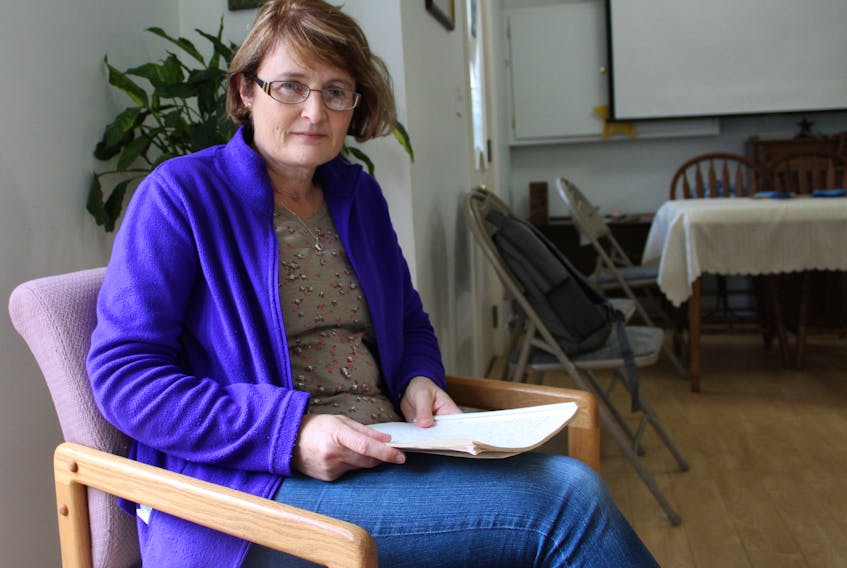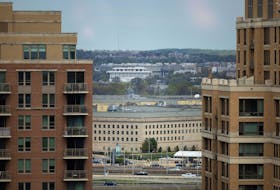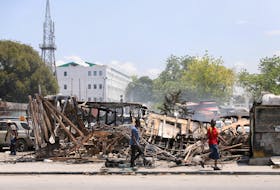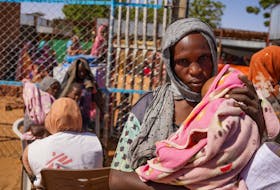The world we live in is becoming more complicated daily. There is rotten politics, bad people and a dwindling environment brought on by humanity’s wayward treatment of the world we live in.
Scientists, government and politicians have all responded to the impact of environmental issues and how they affect the Earth. In addition, there is an impact on our belief system.
Sister Margaret Twomey, visiting the Sisters of Mercy in St. John’s from Cork, Ireland, said the faith community has to respond to these issues as well, to ensure there is a future for all of us, both physically and spiritually.
Twomey spoke to a group at The Lantern on Monday night to help the Sisters of Mercy spread this message.
“There is a lot of division … and diversity in our world, people with different viewpoints and a variety of beliefs. We all get our light (from the environment) and we are putting a lot of stress on it,” she said.
“There is one thing that unites us, that is our environment … and there are problems with that,’’ she added.
She said it is part of the human vocation to care for and to appreciate the world we live in. If we all care for the world and try to do good — and appreciate and celebrate that mantra, both physically and in the religious tradition — that wisdom and action will do a host of good for the world.
Twomey said everyone understands the principles of reduce, reuse and recycle, and the advent of a carbon tax by a host of governments to help reduce greenhouse gas emissions in an attempt to save the physical world.
“But what can we do as a faith community?” she said.
“The God that can save us is also the God that created us. There is a belief, that creation is good, and we have a responsibility for all of us to care for it. If we don’t, it will come back on all of us.”
This message was the foundation of the Mercy Centre for Ecology and Justice (MCEJ), which was established in 2003.
The centre focuses on “examining, challenging and healing injustice and oppression” and “living a spirituality flowing from a sense of the sacredness of all creation.”
The centre serves as facilitator, advocate, educator and prophet in the many aspects of ecology and justice.
“It is important to take time away and recharge. Take the Sabbath, for example. There was a time when people would take the day, go to mass or service. This has lost its roots,” Twomey said.
“We all need rest. The world needs rest, too, as whatever we do needs to lead to a more sustainable world. We need to take time to pay attention and engage in mindful living.”
She said people of all ages can do these things, and find ways to work on the environment and themselves and put both on a new path, a renewable path that will reduce the use of fossil fuels and help curb climate change in the process.
“We need a new ‘stick-to-it-ness’ to make this work.”
Involvement in social justice has always been a central part of the ministry of the Sisters of Mercy. However, in these changing times and through congregational chapter discussions and statements, it was becoming apparent that a more integrated vision of ecology and justice for the care of all God’s creation, both human and non-human, on Earth was evolving.
From its establishment, a vegetable garden was deemed to be an essential component of the centre. Though suitable growing space was not available at any of the earlier locations, the centre was generously supported by local farmers, who each year donate a large portion of their farmland.
The crops are planted by the Association of New Canadians, who will be on hand Wednesday morning to harvest the bounty, share in a meal at the centre and take the vegetables back to their centre, where they will be divided among the new Canadians in the association.









